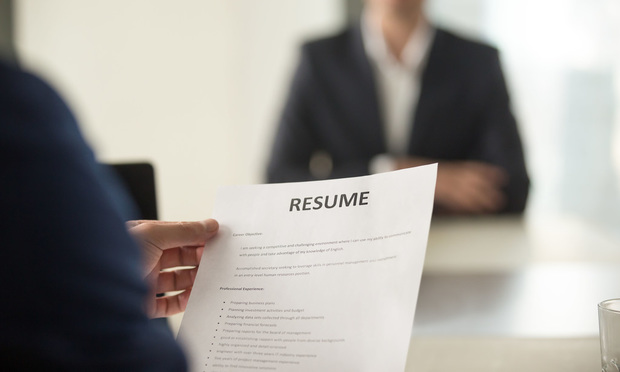If confidentiality is critical to your job search, any marked change in your schedule, behavior, attitude, work product, or attire could arouse suspicion. Furthermore, you must be careful how you use online job search resources and reach out to your networks. If you have a job while seeking a new opportunity, the consequences of discovery by your current employer include the possibility of immediate termination or, at least, the loss of trust and questions about your loyalty.
Communicate Undercover
Avoid using your employer’s computer, printer, email, phone, fax or copier for any job search functions. You don’t know who might overhear, monitor your communications or web-surfing history, or find incriminating evidence on your computer or inadvertently left elsewhere in the office equipment. You also don’t want to run the risk of accidentally sending sensitive email to someone on the firm’s contact list. Beware if your smartphone, tablet, or laptop is employer-issued as it may be subject to monitoring. Or if, for some reason, you need IT assistance or there is some sort of wider technology glitch, you leave yourself open to discovery. Moreover, if your search is “outed†and you find yourself summarily dismissed, you lose access to your job search documentation. Therefore, invest in your own private technology and use a separate personal email account for your search.
An increase in behind-closed-doors conversations and phone calls may tip off others to your job search, especially if you previously had an open door policy. Use only your personal cell phone and email account for your job search but leave the ringer and audio alerts muted and check for messages discreetly and often. Initiate and respond to such communications while out of the office on breaks, lunchtime, before or after work, or in your car to and from meetings. If you happen to get a job search related call on your office line, tell the caller that you can’t talk now or, if someone is in your office, that you are in a meeting, and schedule a time to call back. Make the return call from your own phone and from outside the office.
Maintain Routine
Any change in your schedule might arouse suspicion. If you suddenly begin to come in late, leave early, take long lunches, have an increase in doctor or dentist appointments, or disappear for unexplained periods, others might correctly assume that you are interviewing. For lawyers who telecommute part of the time, or whose practices require them to be out of the office on an irregular schedule, this is not such a big problem. For others, who put in most of their hours at their desks, interviewing will require more discretion. Some candidates have alluded to mysterious medical problems that would be indelicate to discuss in detail, thus giving themselves leeway to schedule meetings as necessary. Beware, however, how you enter your interviews on your personal and office calendars, especially if they automatically sync with each other and are viewable by others.
If you find it difficult to get away from the office, many prospective employers understand the pressures of practice and will meet you for breakfast, lunch, late in the day, dinner, or even on the weekend. Similarly, schedule phone or teleconference interviews for a time you can conduct them at home or somewhere outside the office.
Your routines, work product, and office demeanor also should not change. Maintain your work pace and quality. Don’t be tempted to slack off or turn down work assignments until you have accepted an offer elsewhere. Check your office emails and respond at your regular pace. Continue to participate in your usual “extracurricular†firm activities such as committees, publications, marketing, and social events. You don’t want your absence to raise any questions. Don’t start (or stop) complaining about the stresses of your workload; carry on as before, even if the prospect of leaving your present job makes you uncharacteristically happy, or the possibility of your search being discovered makes you extra skittish.
Likewise, a dramatic upgrade to your wardrobe could set off alarms. If your workplace is business casual, showing up in a suit is not a good idea. Perhaps wear to the office the skirt or pants and shirt you planned for the interview, and—outside the office—add (or subtract) a jacket, tie or scarf, and dressier shoes. If you need to do a complete costume change, do so where neither your colleagues nor anyone from your potential employer can see you.
Minimize Leaks
Most importantly, don’t spill the beans yourself. Only inform others that you are looking for a new job on a strict “need to know†basis and stress absolute confidentiality. You may want to reach out to people in your network who can connect you with your ideal job, but do so very carefully. Of course, you may inform your family or significant other about your plans, but with the admonition to keep it quiet. Limiting the number of people who know about your search reduces the opportunity for accidental disclosure.
Along the same lines, don’t post anything about your job search on social media, even sites you assume to be completely personal and private. Set all privacy controls to the maximum, but remember: don’t put anything on the Internet you wouldn’t want to see on the front page of the New York Times. While your current employer could assume a legitimate networking and business development purpose for your updated presence on Facebook, LinkedIn, or Twitter, beware of hinting about your job search in comments or status updates. On the bottom of your LinkedIn profile, it’s probably safe to include job inquiries as something others may contact you about, as long as you also check off a number of other options such as consulting offers, expertise requests, reference requests, and getting back in touch. Be sure the job histories on your resume and LinkedIn profile agree, as prospective employers or recruiters may compare them.
Be very careful when posting to online job boards. Again, utilize all privacy settings. Some boards will allow you to control who sees your information; you may want to avoid those that allow open access. Other sites may accommodate resumes that do not reveal your name, contact information, or current employer (substitute something like “regional 40-attorney general practice law firmâ€. On a “blind†resume, don’t forget to omit any publications or current professional organization offices held, as that could blow your cover. Create an email account for your confidential job search that does not use any part of your name, but is professional. Steer clear of blind ads as you could inadvertently submit your resume to your current or previous employer.
Emphasize to prospective employers and recruiters that your search is confidential. Reputable legal search consultants abide by the National Association of Legal Search Consultants Code of Ethics, which requires candidates to pre-authorize any disclosure of their identity or resume. Ask recruiters or prospective employers to give you notice before conducting reference checks, and to contact your current employer only after issuing you a conditional offer of employment.
Own Up
Despite your best efforts at confidentiality, your job search may be discovered. In that event, a denial will only make matters worse. Admit you’ve been exploring other opportunities, perhaps adding that you’re always interested in keeping up with developments in the marketplace. If discontented with your current situation, be candid about your reasons for looking. While the conversation might be uncomfortable, conditions could improve—at least long enough for you to land a better position.
Author:
Valerie Fontaine
SeltzerFontaine
Legal Search Consultants
2999 Overland Avenue, Suite 120
Los Angeles, CA 90064
Direct Dial: 310-842-6985
Main: 310-839-6000
[email protected]
www.seltzerfontaine.com











